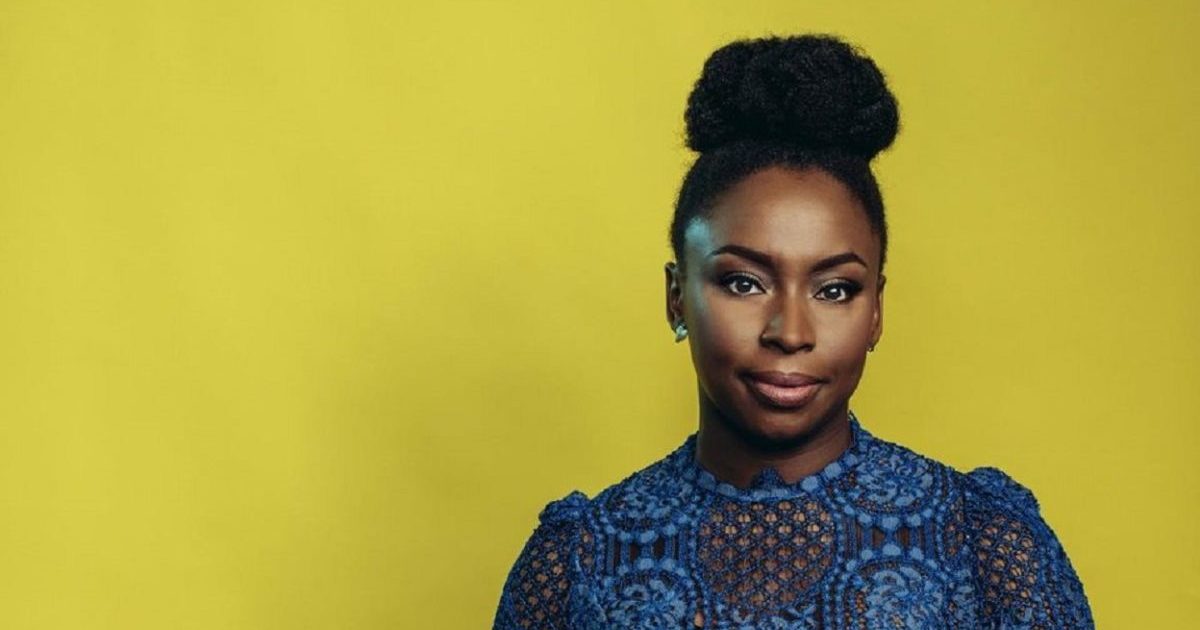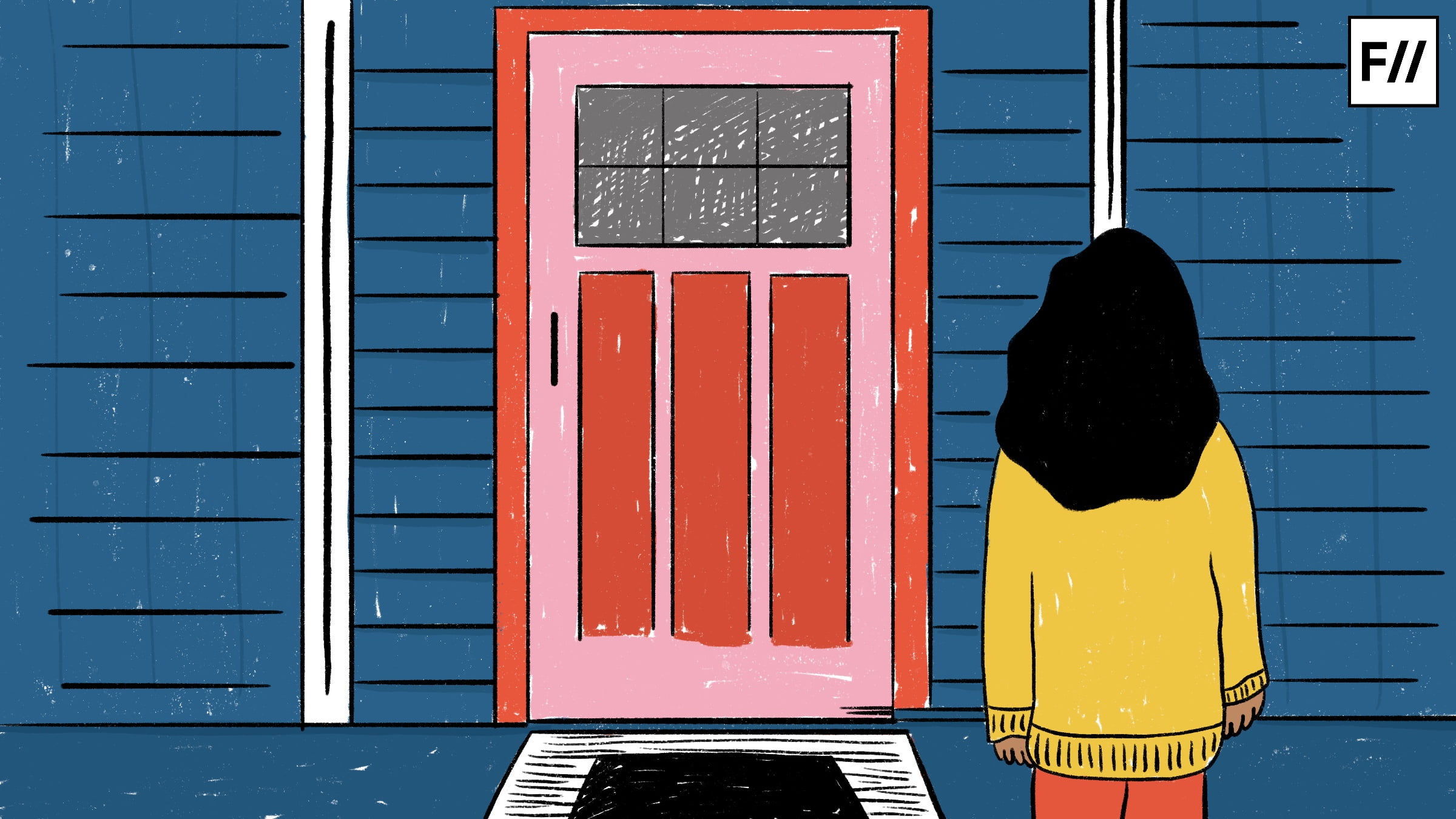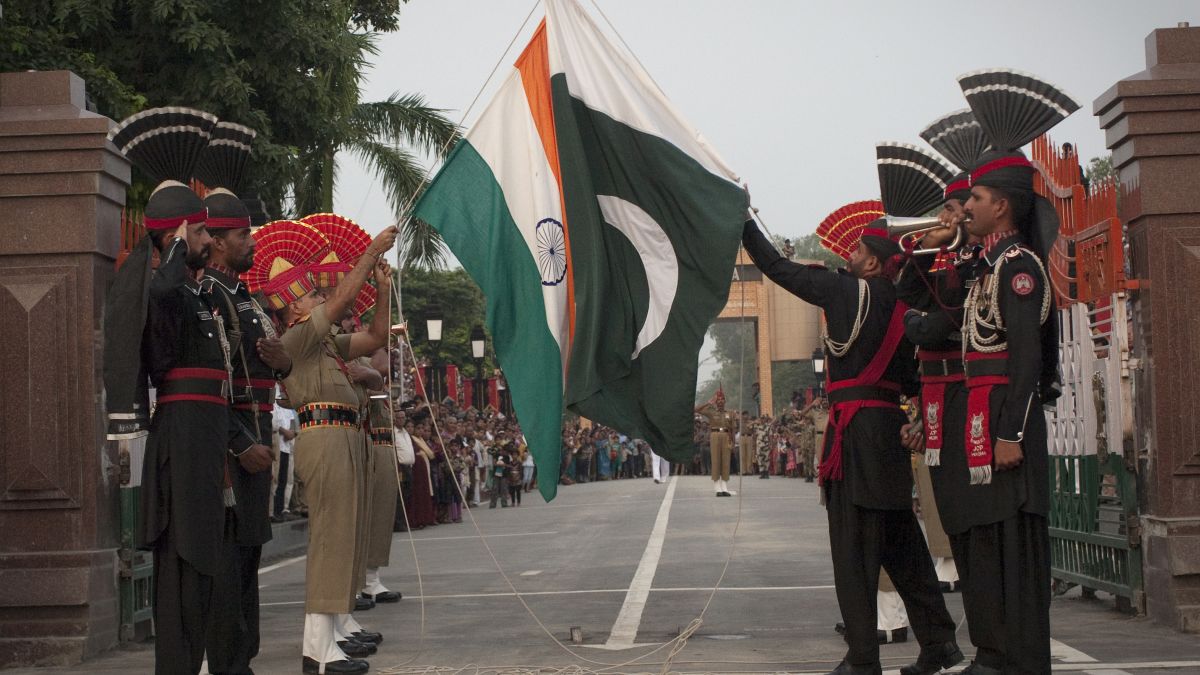The word ‘feminism’ still irks a lot of people. Mostly, while men feel that the word is widely used to strip them of their opportunities, many women understand it as a way to bash men and their existence. Men, when around these ‘male bashing’, ‘strong’, ‘powerful’ women become victims of this misconstrued concept of feminism. No, it is not a singular perception of feminism, but one that needs to be addressed. There is one woman, who was born on this day, September 15, and has been, for several years now working to break this misconception, along with some other stereotypes of feminism through the way she dresses, her demeanour and her story telling. It makes me as excited as my own, to be celebrating Nigerian author Chimamanda Ngozi Adichie’s birthday by highlighting her understanding of feminism. I was introduced to Chimamanda Ngozi Adichie by my professor in college, nine years ago through a Ted Talk.
Her Ted Talk, ‘The Danger of a Single Story‘ is powerful. The calmness in Adichie’s voice recalling the story of her initial interaction with her roommate when she moved from Lagos, Nigeria to the United States will move you. Now, I use the same to teach my students about stereotypes, prejudices and also of course, the danger of a single story. That one is worth a watch, as she addresses people’s notions of race, gender and nationality. If you are the curious kind, like I am, her impression on you is likely to make you follow her other works.
That was what I did and her work is a piece of art that directly relates to the world around you, especially if you are a woman.
How is she different from other path breaking feminists? Or what is so great about being a good story teller? I will explain.
Raised to be an independent woman, I had certain notions about being vocal. Also, those who are vocal, are of a certain ‘type’ and had to fit into certain ‘boxes’. This was something I noticed while I was growing up, and to a large extent even wanted to fit in those boxes. Adichie is one who blurs those lines, who made me realise that feminism is nothing but letting people, women, men or any other gender, be, look, dress, walk, talk, dance, and live in the way they want to.
She represents this herself and has also mentioned it on several occasions.
Raised to be an independent woman, I had certain notions about being vocal. Also, those who are vocal, are of a certain ‘type’ and had to fit into certain ‘boxes’. This was something I noticed while I was growing up, and to a large extent even wanted to fit in those boxes. Adichie is one who blurs those lines
In conversation with comedian Trevor Noah on The Daily Show with Trevor Noah she said, “People think a feminist is a crazy woman, who hates men and doesn’t shave.” But that is not what it is. Feminists are only looking to have equal opportunities for all people, she explained. The reason why Noah discussed this with Adichie was because she had then released the book, Dear Ijeawele, or A Feminist Manifesto in Fifteen Suggestions. The book was written as a letter to her friend on how to raise a feminist.

Chimamanda Ngozi Adichie also needs to be appreciated for being an advocate about educating people on the whole about feminism. Some argue that it should not be the responsibility (in this case), of a woman to teach a man about treating women as humans, and not objects or those that need to be saved. Adichie does not disagree, but at the same time, she points to the imbalance that is being created. Girls are being empowered but at the same time, boys are not being taught, consciously about equality for all.
This is not creating a balance, where people can co-exist without being discriminated on the basis of gender. Instead, it’s probably reversing patriarchy. It is important to teach boys and young men to feel comfortable around women who are powerful, who make more money, are more talented or even more vocal. People of all genders, should be made to realise that no one should feel weaker than any other for any reason. In another instance, Adichie also talked about how opening the door for a woman is considered an act of chivalry and her point was to open the door for a person, irrespective of their gender.
This has often led me to think about my immediate surroundings, where I have encountered women who tend to disregard every good thing about a man, just because he happens to be a man. The point I am trying to make, with Adichie’s blessing, is that men should not be made victims for being men, because that is not what feminism is about. This happens quite a bit and we need to be a little more conscious, because, we are all products of patriarchal societies. And no, I do not mean to say that the onus is again on the women, but something that all people need to take note of. This is also not to say that people of certain genders, say women, are not to be encouraged to be given reservations, for example. While that is necessary, we also need to be careful before disregarding people’s talents — just like women have been disregarded for centuries, despite being talented and hard working.
Chimamanda Ngozi Adichie is also a great story teller, one of a kind in her time. Her stories take you to the place where they are set up and make you feel the way the characters feel. That is not something many writers are capable of. Her book, Americanah, which is based loosely on the experiences she had when she moved to the United States briefly. While the book is globally acclaimed, her first novel, The Purple Hibiscus is recommended. It takes you to a different place and Adichie does not ever describe any situation, but makes you sense it and experience it as if it is your own. That is a compelling quality of her writing.
All her books have strong female characters and bring to the fore the patriarchal aspects of her culture, which is relevant.
Adichie is also a great story teller, one of a kind in her time. Her stories take you to the place where they are set up and make you feel the way the characters feel. That is not something many writers are capable of.
Her latest book, Dear Ijeawele, is promising. Why? It is short, simple and has easy hacks to raise feminist children, who will attempt to look at all people as people.
Apart from gender equality, Adichie also advocates for local artists and creations. Breaking the common stereotype that women who are feminists are not quite ‘feminine’ in their demeanour, Adichie spends a lot of time in dressing herself up. She takes time to pick her clothes, and do her hair, naturally. A chapter on African women aping the west and losing their natural hair in her book Americanah is one that captivates, because Adichie explains how hair is political. That was new for me then.
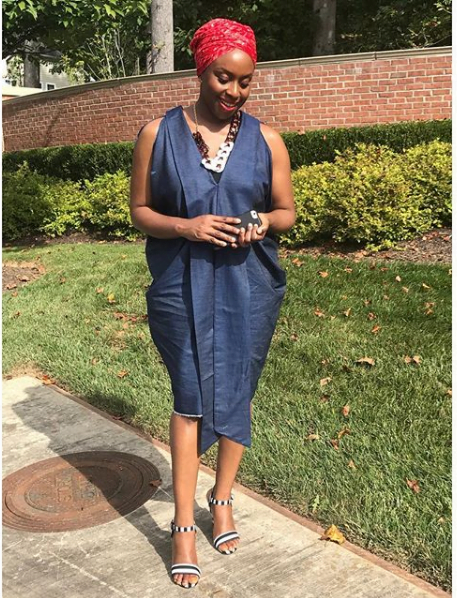
The way Chimamanda Ngozi Adichie wears her hair is a symbol to embrace one self, for who they are, as they are. Her choice of clothing is sassy and spunky. She most often wears and promotes local stylists, and designers from her country, which is also how she advocates the need to embrace and be comfortable in one’s own skin. She uses the hashtag #MadeInNigeria.
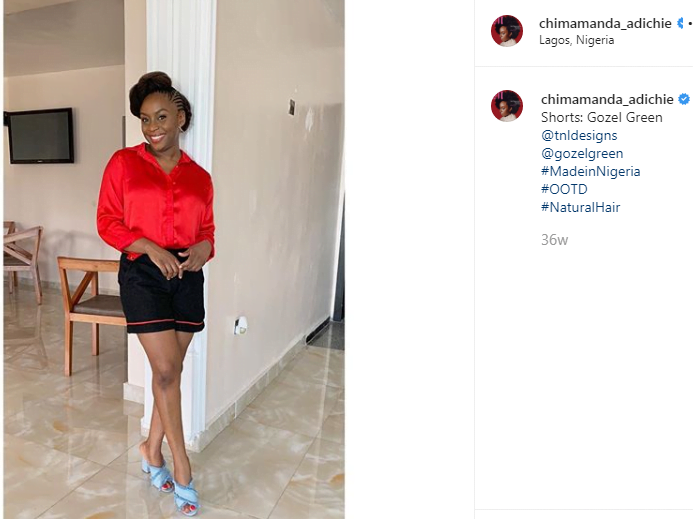
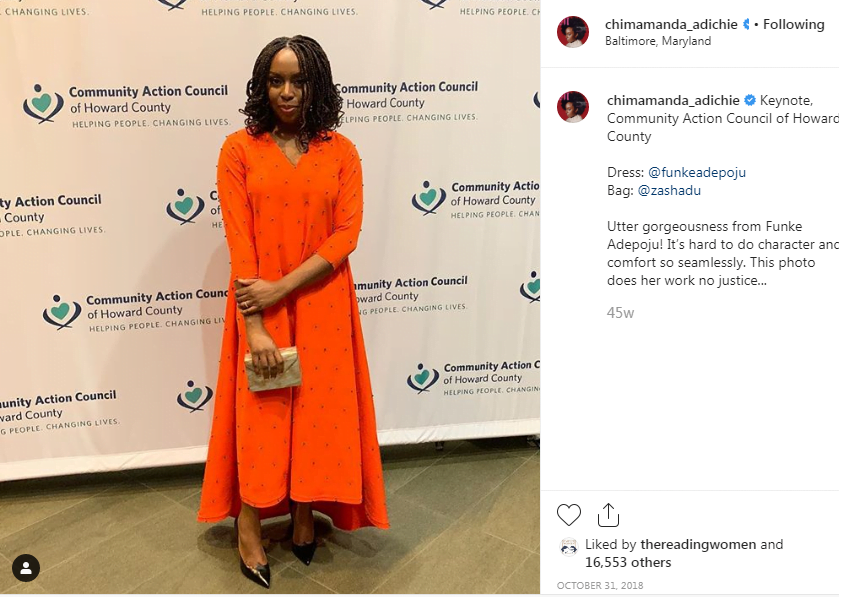
Also read: Watch: 5 Indian Muslim Feminist Writers You Should Know About
And when Chimamanda Ngozi Adichie talks, you cannot look away but listen to what she is saying — whether it is her views on equality or taking responsibility for offending people with her opinions. In 2017, Adichie received a lot of flak for a couple of comments she made on transwomen. In an interview to BBC’s Channel 4, she talked about how experiences of transwomen are not the same as those who identify themselves as women from their birth. She said that gender is more ‘sociological’ than ‘biological’ and transwomen do enjoy the privileges of living like men, until they undergo the transition.
This is a problematic statement because gender experiences are deeply personal, emotional and sensitive.
For starters, many asked her not to speak on behalf of transwomen, which is something I fully agree with. When men can be called out for mansplaining, women can be called out for transwomensplaining too, I think. Though to each its own, the stigma and emotional trauma that transpersons undergo is inconceivable for any of us. However, the impressive thing here is Adichie took responsibility for her comments and clarified in a long Facebook post on what she meant to say — that every gender experience is different and all gender problems cannot have the same solutions. A little post-reflection perhaps did help her thought process. That is appreciable.
Yes, there are several great feminists working hard for equality and so is Adichie. So, let’s take this day to celebrate her and her advocacy for equality!
Happy birthday Adichie!
Featured Image Source: Brittle Paper
